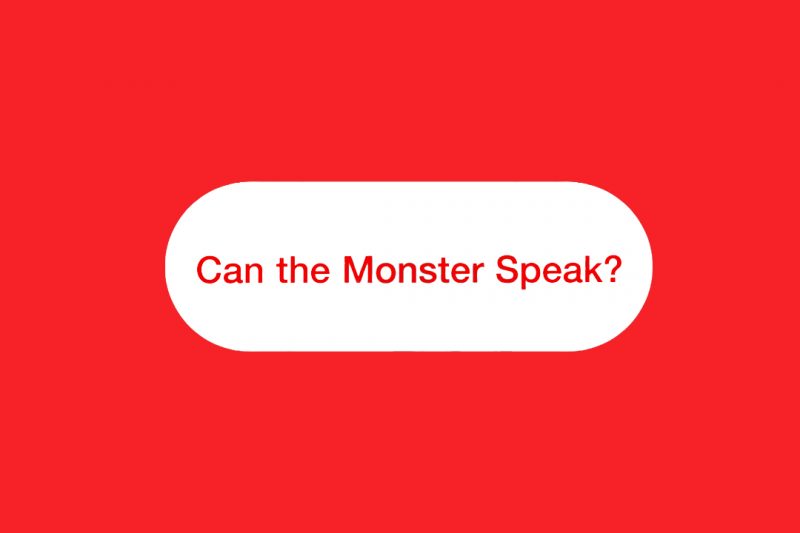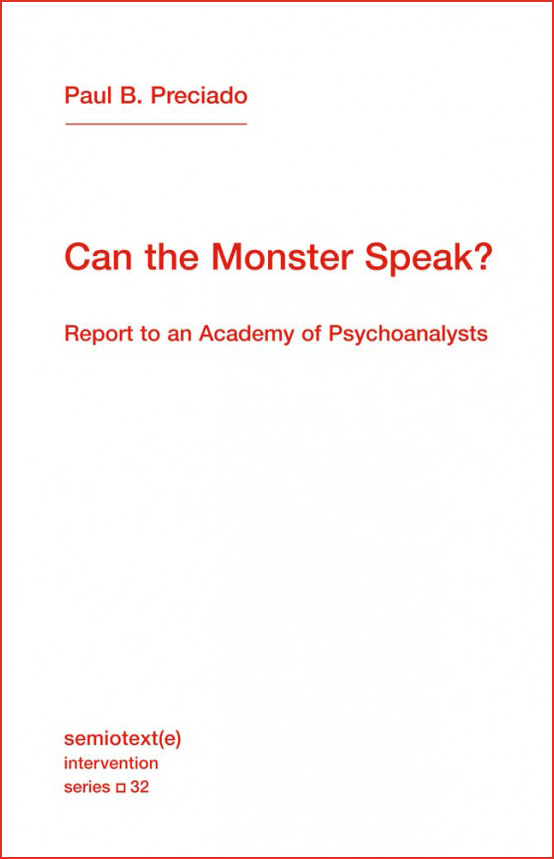USEREVIEW 059 (Capsule): Can the Monster Speak?
Paul B. Preciado
Can the Monster Speak? (Semiotext(e), 2021)
Translated by Frank Wynne
ISBN 978-1-63590-151-1 | 104 pp | $15.95 USD / $21.95 CAD — BUY Here
#CAROUSELreviews
#USEREVIEWEDNESDAY
Can the Monster Speak? is the full text of a speech that Paul B. Preciado attempted to deliver to a few thousand psychoanalysts from Lacan’s L’École de la Cause Freudienne in 2019. The speech was never completed because it caused such an uproar among the gathered psychoanalysts and it is not difficult to see why. This speech is a protest, reprimand and harbinger to the entire discipline of psychoanalysis. Comparing himself to the ape Red Peter, who addresses a conference of scientists in Kafka’s ‘A Report to an Academy,’ Preciado says that his status as a trans man in a non-binary body renders him an inhuman monster within the archaic framework of psychoanalysis. (Though he is no less caged by sex and gender than any other body, he feels a certain freedom in choosing his cage rather than having it assigned to him.) The monster and animal analogies are not self-deprecation, but a remonstrance to the psychoanalytic discipline for failing to adapt and evolve, and for remaining mired in 19th-century binaristic taxonomies that have always failed to capture the full spectrum of lived experience. As the title foreshadows, with its allusion to Spivak’s seminal decolonial text ‘Can the Subaltern Speak?’ Preciado lambastes psychoanalysis for being not merely a product of colonialism, but an ongoing tool of it, and argues that rigidly binary views of sex and gender are one mode of imposing colonial rule on the individual body. Rather than dismissing the discipline, however, he calls upon psychoanalysts to rethink it and turn it into a viable epistemology, as opposed to an outdated collection of historically-specific beliefs that treat queer and trans people as deviants. After reading, I was left with one question: why is Preciado trying to save psychoanalysis if he sees it as fundamentally flawed? Upon reflection, I do not believe he is trying to save the discipline. Rather, he is speaking to psychoanalysts, to patients, to those trapped in the psychoanalytic cage, and offering them a way out.
Recommended excerpt:
Sorry, you have to read the whole essay to appreciate it.



